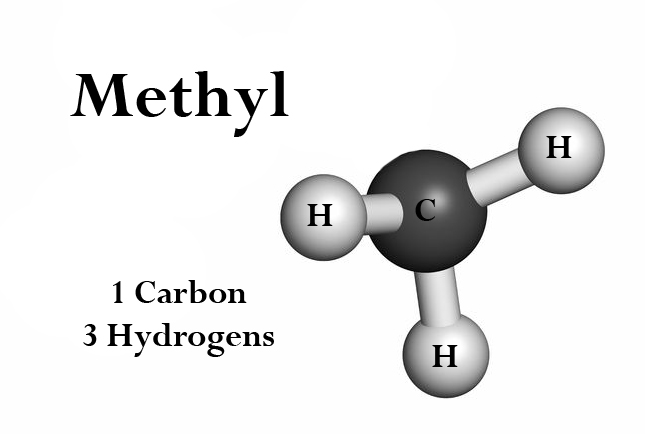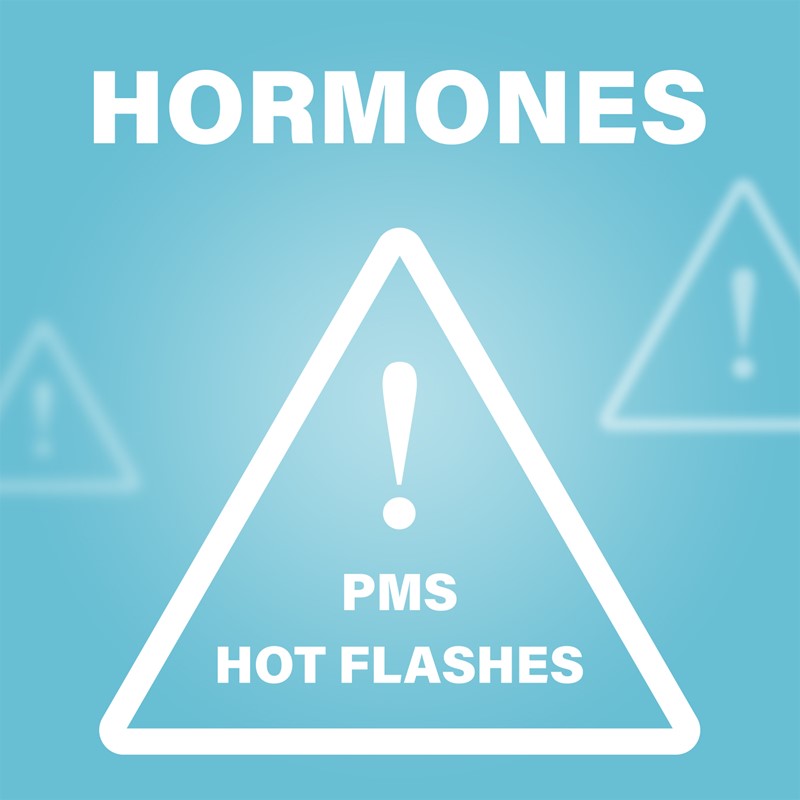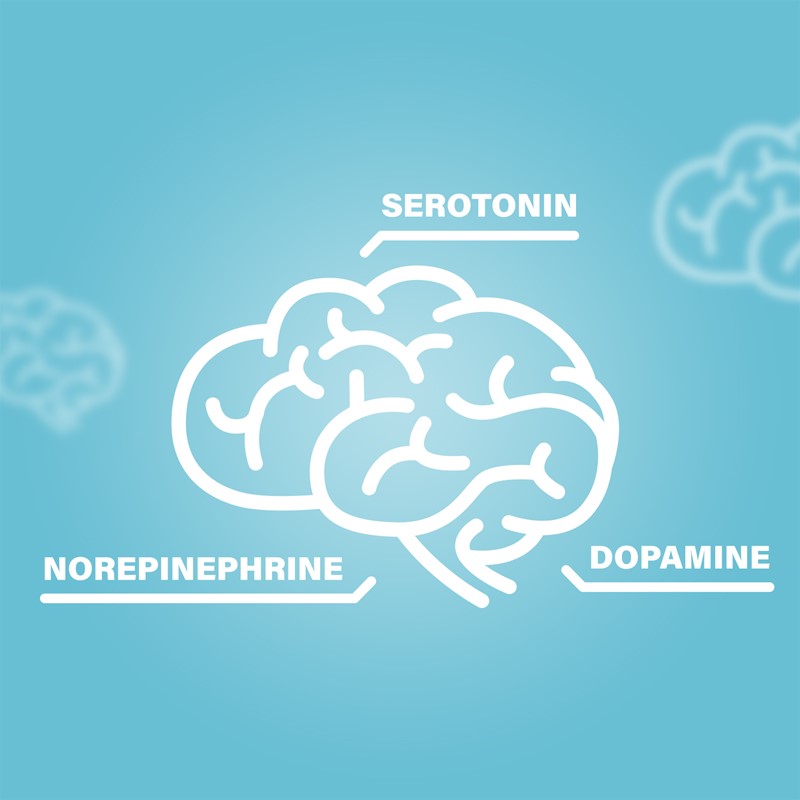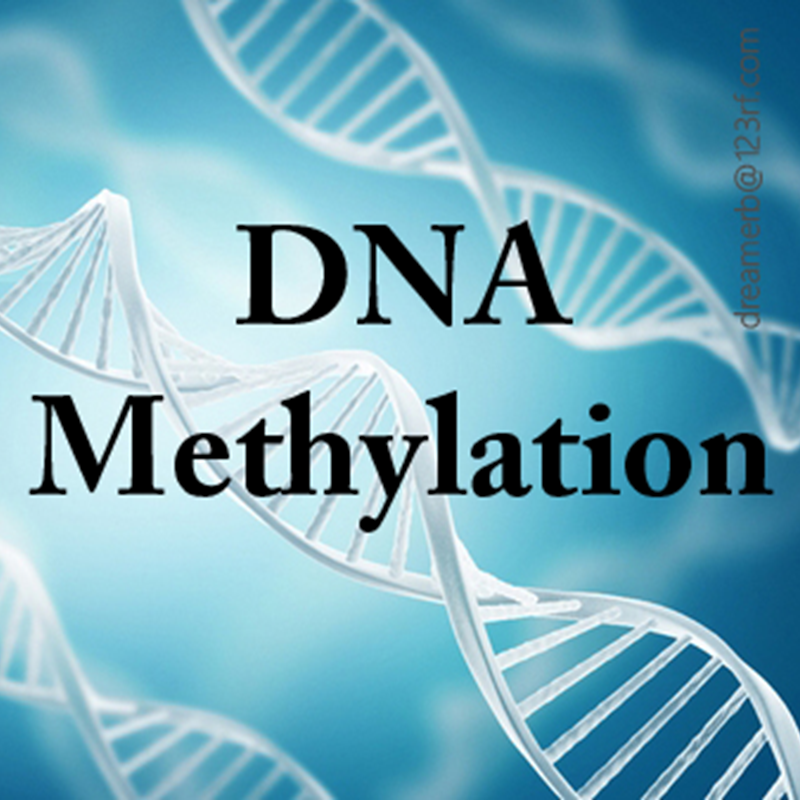MTHFR and methylfolate
Depression, Anxiety, Autism, Autoimmune Disorders, Fatigue, Headaches, elevated homocysteine levels, Fibromyalgia, Irritable Bowel Syndrome, Parkinson’s Disease, stroke, Heart Disease, multiple miscarriages, and birth defects…What do they have in common? A common genetic mutation called MTHFR.

What is MTHFR? MTHFR has been talked about a lot recently, but what is it? It is a small gene mutation. MTHFR stands for the methylenetetrahydrofolate reductase. The name is not important, but the function is, because the MTHFR genes codes for an essential enzyme in methylation.
What is methylation?
To understand methylation, you must first understand what a methyl group is, and why it is important. It’s really a very simple molecule. It’s one carbon hanging out with 3 hydrogens.
Your body passes this methyl group from one chemical to another in your body in a process called methylation. These chemicals are things like enzymes and DNA. For simplicity sake, I will call them all enzymes.
It’s like in this video with children passing balloons around a circle. The balloons are methyl groups. This is really critical since methylation is needed for 240 different enzyme reactions in the body. Methylation is vital to Feeling Good in Your Genes
You need methylation for some very important functions in your body:

Methylation is needed to removing many chemicals and toxins from your body. Remember last time you forgot to take out the trash??? Smelly! If you don’t get rid of some toxins and chemical, it’s pretty rotten, too.

Methylation is crucial for Metabolizing hormones and keeping them in balance.

Methylation is needed for Making and breaking down chemical messengers in the brain, like serotonin and dopamine

Good methylation helps you build up your defenses…it is need to build some immune cells

Methylation is also important in helping you produce energy!

Perhaps the most important function is in the duplication and “reading” of DNA. In fact, just stopping the methylation of DNA in mice triggers the autoimmune disease Lupus. Did you catch that? Stopping methylation of DNA can trigger Lupus in mice! These are all really good reasons to keep the balloons going around the circle.
MTHFR gene mutations cause poor methylation. How common is MTHFR? Studies show that at least 40% of the U.S. population has at least one MTHFR mutation. There are 4 significant mutations studied so far.
How do I find out if I have a mutation? You can request a blood test from your regular practitioner. A better option is to do a simple saliva test through Ancestry.com. It takes a little longer to get your results, but you also get 1000’s of other genes, also.
After I Ancestry.com has completed my genetic analysis, what do I do? Contact me or make an appointment with my office. We can meet and generate a report showing us which methylation genes we can support to change how you Feel in Your Genes.
What can I do if I have an MTHFR mutation? For someone that has the MTHFR mutation, methylfolate may or may not be helpful right now. Methylfolate should be taken with caution and under the direction of a practitioner trained in its use (I have this training and would love to assist you). Methylfolate, at any point in therapy, can cause irritability, insomnia, sore muscles, rash, achy joints, severe anxiety, palpitations, nausea, headaches, and migraines. Instead, I would recommend 5 Things to start with:
- Optimize your Sleep times. 7.5-8 hours of sleep at least, going to bed the same time and waking at the same time everyday. Sleep before midnight is worth more than sleep after 7am. If you wake not feeling rested, add a small dose of melatonin (1-3mg) 1 hours before bedtime. This isn’t a magic fix that you notice right away. It improves the quality of your sleep over 2-3 weeks. If you are struggling sleeping (not being able to go to sleep, or waking in the middle of the night), then that is something important to address.
- Belly breathing (see below for how to do it): Train yourself at night, then practice standing and sitting. 5 minutes before going to sleep and 4 other times of the day. Use this technique every 1 & 1/2 hours during the most stressful part of the day. You will get pretty good to where you don't have to think about it. This decreases heart rate, blood pressure, and cortisol levels.
- Optimize your fuel:
- No High Fructose Corn Syrup or sugar. Schedule a weekly treat.
- Try meats and veggies and not a bunch of carbs. The easiest way to do this is the plate method. Fill your plate 1/2 full of veggies at the get go. Go for a colorful assortment; this allows you to get the nutrients and antioxidants you need. ¼ of the plate is protein and ¼ of the plate is your starch (bread, pasta, rice, potatoes, corn). Try to eat as many different colorful vegetables and fruits as you can to increase anti-oxidants and fiber.

- Exercise is great. don't do a marathon, and don't go longer than 45 minutes a day. If you are more tired around 2 hours after your exercise, you may have pushed it too hard.
- Detoxify- This is a big word that is often misused. Take hot baths before bedtime with 1 cup of Epsom salts and 1 tsp of baking soda. Soak 10-15 minutes. Eat at least 1 cruciferous vegetable (broccoli, cauliflower, Kale, cabbage, brussels sprouts) per day to increase some liver enzyme function. Take NAC (N-acetyl Cysteine) 600mg 2 capsules per day.
-
Start with a good multivitamin with methylfolate in it. Foundation Multi is a a great start to feeling better. It contains no folic acid, only methylfolate. For more information, you can follow the link below to find out more and purchase this great product.
I would love to help you treat your MTHFR mutation AND improve your methylation. For more information about meeting, contact my office for an appointment.